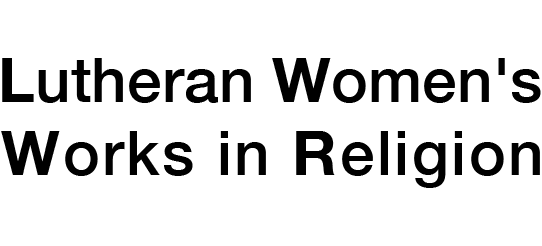Item Type: Book Chapters
THEOLOGY
Deanna Thompson "The Cross, Friendship, and Empire" In Being the Church in the Midst of Empire: Trinitarian Reflections. ed. Bloomquist, Karen. Minneapolis: Lutheran University Press 2007This article utilizes my work on reimagining Christian vocation in terms of friendship rather than servanthood. I suggest that even though friendship seems too mundane a relationship to resist the politics of empire, it can be a surprisingly powerful mode of relation for cross-cultural connection and resistance to the powers that be, both within and outside of the church.
This article is a condensed version of argument made in Crossing the Divide.
PASTORAL CARE/THEOLOGY
B. R. Wallace "A Womanist Legacy of Grief and Trauma: Reframing the Notion of the Strong Black Woman Icon" In Women Out of Order: Risking Change and Creating Order in a Multicultural World. eds. Jeanne Stevenson-Moessner and Teresa Snorton. Minneapolis: Fortress Press 2009BIBLICAL STUDIES
Rivta H. Williams "Chapter 14 – Purity, Dirt, Anomalies and Abominations" In The Social World of the New Testament. eds. Dietmar Neufeld and Richard E. DeMaris. Routledge: Taylor & Francis Group 2010 : 207-219Drawing on the work of anthropologist Mary Douglas, I define purity rules as symbolic expressions of a group‘s identity and core values. Reading Mark 7:1-23 through this lens demonstrates that Jesus and the Pharisees are both concerned about the purity of personal and social bodies, but differ in their assessment of what threatens that purity and how best to preserve the body‘s wholeness and integrity.
In this essay I contend that the Greco-Roman system of patron-broker-client relations shaped early church structures in important ways, even when the language of patronage was not explicitly used. This is especially evident in Ignatius of Antioch‘s letter to the Ephesians in which he ascribes various functions to bishops that most resemble the role of brokers of heavenly goods in a system of divine patronage.
This essay integrates cultural anthropological insights about life in the ancient Mediterranean world with traditional historical critical methods for reconstructing the life of Jesus. As I assess the historicity of Matthew‘s birth narrative, I ask how its claims would have been understood by the 1st century Judeans in the text and who produced the text, specifically, would claims for virginal conception make sense to them?

